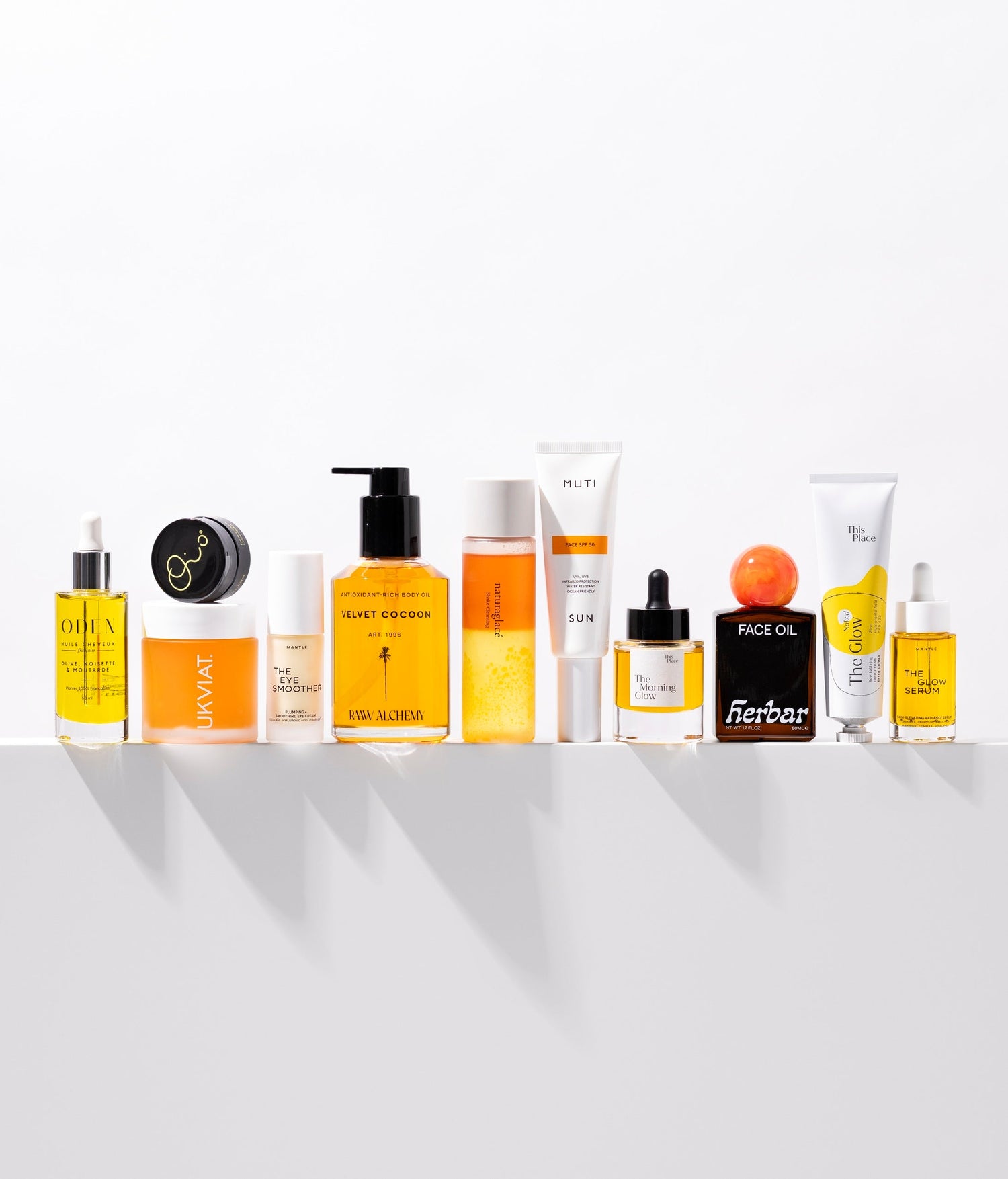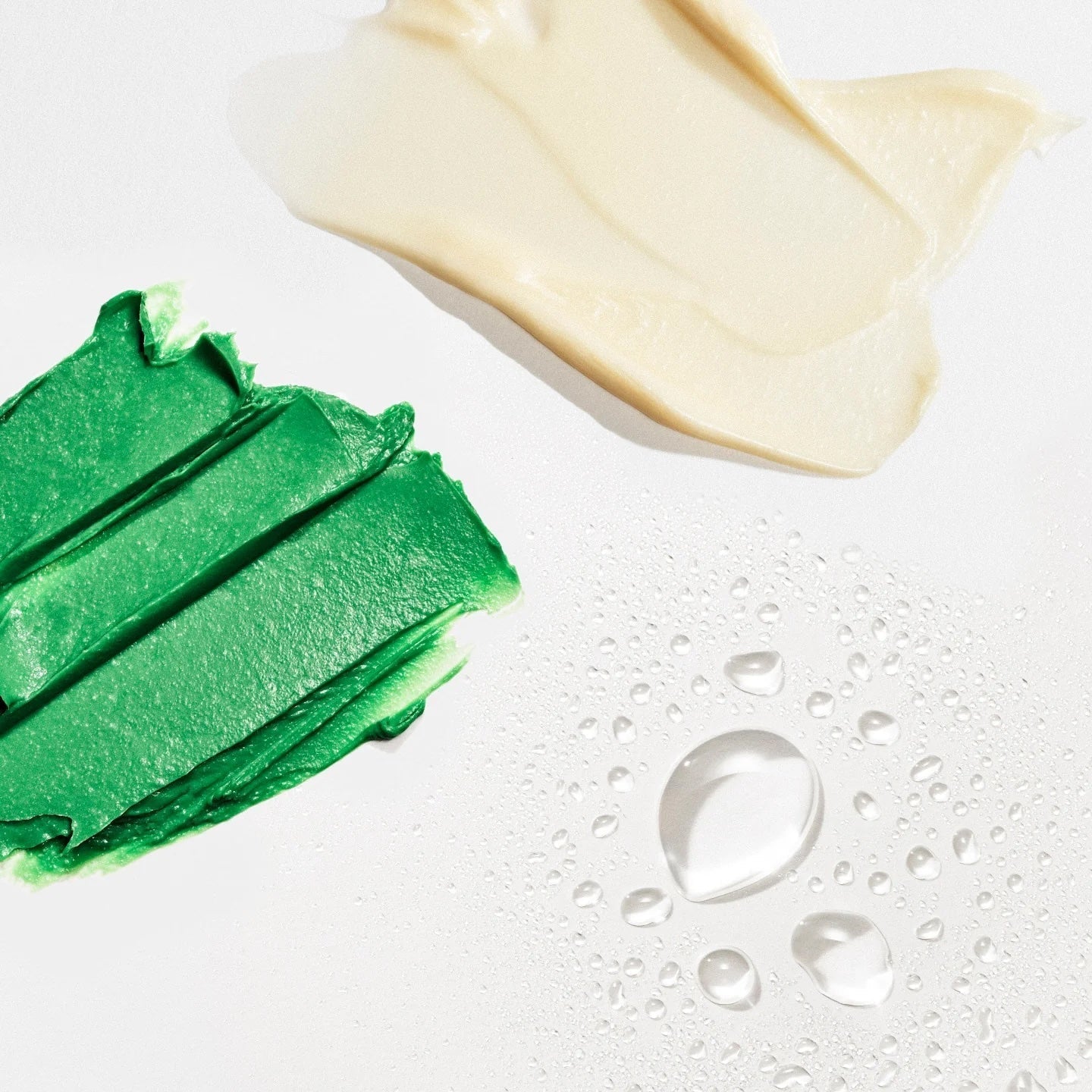Today there is more text than usual because one topic is particularly close to our hearts and is hotly debated in the summer months:
SUN PROTECTION
The scientific evidence leaves no room for doubt: it is extremely important that we use sunscreen every day, regardless of the weather conditions. This serves both to prevent premature skin aging and to protect against skin cancer - through an effective and pleasantly formulated sun protection that is specifically suitable for your skin type. Therefore, it's helpful to understand the differences between sunscreen ingredients - what they are, how they work, and how they feel on the skin.

There are two types of ingredients in sunscreens: mineral and synthetic. Both offer equally effective protection. Depending on the skin type, suitable formulations can contain both mineral and synthetic ingredients.
The question of which type of sun protection is best depends on personal preference and the sensitivity of your skin. Mineral sunscreens are considered the gentler option because they are considered to have the gentlest ingredients.
Mineral sunscreens only contain two ingredients: titanium dioxide and zinc oxide. They work in the top layers of skin to both absorb and (to a lesser extent) reflect and scatter the sun's harmful rays. These mineral ingredients are sometimes referred to as physical sunscreens or physical blockers.
On the other hand, there are over 30 synthetic sunscreens that penetrate the upper layers of the skin and work similarly to mineral active ingredients by scattering and reflecting the sun's harmful rays.
(The sun products we offer with synthetic filters are clean, which means they do not contain any questionable ingredients).
There is no clear best sunscreen as the choice depends on personal preferences and individual skin needs. However, it is important to choose a sunscreen with a sun protection factor (SPF) of 30 or higher to ensure adequate protection from the sun's harmful UVA and UVB rays. Additionally, you should consider your skin's reaction to different sunscreen ingredients and textures, be they mineral active ingredients, synthetic active ingredients, or a combination of both.
Mineral sunscreens:
They provide immediate protection upon application, but require some time to absorb to be fully effective and to ensure they do not rub off on clothing.
They generally do not cause skin irritation and are therefore suitable for sensitive skin.
They do not penetrate the upper layers of the skin.
A potential downside is that they can leave a white cast on darker skin tones, although the high-quality mineral sunscreens we offer have an almost transparent finish. Due to their formulation, more liberal application may be required.
They provide immediate protection upon application, but also require some time to absorb to be optimally effective and to ensure they do not rub off on clothing.
They are often used in products with a lighter texture. Waterproof formulations are often preferred because they don't turn milky when you sweat or get wet. Nevertheless, regular re-creaming should be observed. They can penetrate the skin and be absorbed in small quantities, but this has been proven to be harmless.
The synthetic sunscreens we offer are clean, meaning they are free of parabens, silicones, mineral oil products, synthetic fragrances, plasticizers, oxybenzone, sulfates and PEG. They are non-toxic and therefore harmless to people and nature.
Our new self-tanning drops from Le Beach have arrived and will give you a sun-kissed complexion. The Tantasy drops are easy and even to apply, give a natural glow and have moisturizing properties. Simply add a few drops to your facial or body care product - and voilà: a beautiful, radiant complexion - all year round and without the harmful effects of the sun.



















